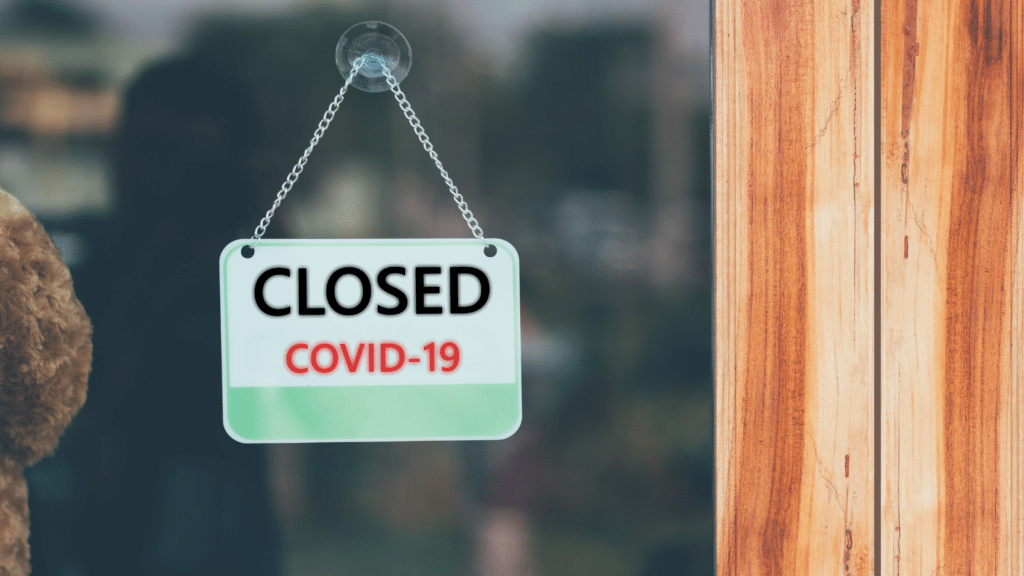Introduction In the landmark cases on turnover taxes implemented by Hungary and Poland, the Court of Justice censured the European Commission for defining its own hypothetical reference tax system that was different from the relevant tax provisions in those two countries. The Court again faulted the Commission in its more recent judgments on advance tax rulings. Given the discretion of […]
State Aid Law
Blog
State Aid Uncovered Blog
In Lexxion’s State Aid Uncovered blog, Prof. Phedon Nicolaides publishes weekly critical analyses of recent State aid judgments and decisions. Each post presents the key points of a court judgment or EU Commission decision, places it in the context of similar case law or practice, assesses the underlying reasoning and highlights any inconsistencies or contradictions.
Guest contributions from other State aid experts will also be published on the blog at irregular intervals to complement the content of the blog posts.
State Aid Uncovered ×
11. December 2023 |
State Aid Uncovered
by Phedon Nicolaides
4. December 2023 |
State Aid Uncovered
by Phedon Nicolaides
Introduction Must an entity that acquires an asset but does not exploit it commercially not be regarded as an undertaking? This was one of two questions that the Court of Justice had to answer on 19 October 2023, in case C-325/22, TS & HI. The answer was no. The second question was how to value land. The answer to that […]
27. November 2023 |
State Aid Uncovered
by Phedon Nicolaides
Introduction On 23 November 2023, Ryanair lost another appeal before the Court of Justice. The Court ruled, in case C-210/21 P, Ryanair v Commission, that the General Court was right to dismiss Ryanair’s request for annulment of a Commission decision that had authorised French aid to compensate airlines for the damage they suffered as a result of the covid-19-related travel […]
20. November 2023 |
State Aid Uncovered
by Phedon Nicolaides
Introduction Public authorities often grant guarantees to undertakings so that the latter can borrow commercial loans at lower rates of interest. The 2008 Commission Notice on guarantees sets out four cumulative conditions that create a presumption that a state guarantee is free of State aid: 1. The borrower is not in financial difficulty. 2. The guarantee must be linked to […]
14. November 2023 |
State Aid Uncovered
by Phedon Nicolaides
Introduction Perhaps the most important criterion for the compatibility of State aid with the internal market is the incentive effect. This means that State aid is capable of changing the behaviour of the recipient undertaking. State aid is normally considered not to have an incentive effect when the recipient undertaking is already committed to launch a project or has already […]
7. November 2023 |
State Aid Uncovered
by Phedon Nicolaides
Introduction The application of the concept of selectivity to tax measures requires a comparison of undertakings or activities that are in a similar factual or legal situation. A tax measure that differentiates between similar undertakings or activities is selective in the meaning of Article 107(1) TFEU, unless the differentiation can be justified on objective reasons. It follows that the proper […]
31. October 2023 |
State Aid Uncovered
by Phedon Nicolaides
Introduction In July 2008, the Commission received complaints alleging that France granted State aid to the operator of La Rochelle airport and certain airlines. Almost four years later, in February 2012, the Commission decided to open the formal investigation procedure. It eventually adopted a decision in July 2022 [Commission decision 2023/1683] which found compatible State aid for the airport, incompatible […]
24. October 2023 |
State Aid Uncovered
by Phedon Nicolaides
Introduction In July 2008, the Commission received complaints alleging that France granted State aid to the operator of La Rochelle airport and certain airlines. Almost four years later, in February 2012, the Commission decided to open the formal investigation procedure. It eventually adopted a decision in July 2022 [Commission decision 2023/1683] which found compatible State aid for the airport, incompatible […]
17. October 2023 |
State Aid Uncovered
by Phedon Nicolaides
Introduction On 28 September 2023, the Court of Justice, in case C-320/21 P, Ryanair v European Commission, delivered its first judgment in a series of appeals brought by Ryanair challenging the dismissal by the General Court of its action in multiple cases seeking the annulment of various Commission decisions authorising aid to airlines during the covid-19 pandemic. Both before the […]
10. October 2023 |
State Aid Uncovered
by Phedon Nicolaides
Introduction In 2016, the Commission found, in decision 2016/1699, that advance tax rulings [ATRs] that had been provided by Belgium to multi-national companies [MNCs] with establishments in Belgium constituted State aid because the ATRs set the taxable income of those companies according to a hypothetical average income rather than their actual income. The profit that exceeded that hypothetical average was […]
State Aid Uncovered ×
11. December 2023 |
State Aid Uncovered
by Phedon Nicolaides
Introduction In the landmark cases on turnover taxes implemented by Hungary and Poland, the Court of Justice censured the European Commission for defining its own hypothetical reference tax system that was different from the relevant tax provisions in those two countries. The Court again faulted the Commission in its more recent judgments on advance tax rulings. Given the discretion of […]
4. December 2023 |
State Aid Uncovered
by Phedon Nicolaides
Introduction Must an entity that acquires an asset but does not exploit it commercially not be regarded as an undertaking? This was one of two questions that the Court of Justice had to answer on 19 October 2023, in case C-325/22, TS & HI. The answer was no. The second question was how to value land. The answer to that […]
27. November 2023 |
State Aid Uncovered
by Phedon Nicolaides
Introduction On 23 November 2023, Ryanair lost another appeal before the Court of Justice. The Court ruled, in case C-210/21 P, Ryanair v Commission, that the General Court was right to dismiss Ryanair’s request for annulment of a Commission decision that had authorised French aid to compensate airlines for the damage they suffered as a result of the covid-19-related travel […]
20. November 2023 |
State Aid Uncovered
by Phedon Nicolaides
Introduction Public authorities often grant guarantees to undertakings so that the latter can borrow commercial loans at lower rates of interest. The 2008 Commission Notice on guarantees sets out four cumulative conditions that create a presumption that a state guarantee is free of State aid: 1. The borrower is not in financial difficulty. 2. The guarantee must be linked to […]
14. November 2023 |
State Aid Uncovered
by Phedon Nicolaides
Introduction Perhaps the most important criterion for the compatibility of State aid with the internal market is the incentive effect. This means that State aid is capable of changing the behaviour of the recipient undertaking. State aid is normally considered not to have an incentive effect when the recipient undertaking is already committed to launch a project or has already […]
7. November 2023 |
State Aid Uncovered
by Phedon Nicolaides
Introduction The application of the concept of selectivity to tax measures requires a comparison of undertakings or activities that are in a similar factual or legal situation. A tax measure that differentiates between similar undertakings or activities is selective in the meaning of Article 107(1) TFEU, unless the differentiation can be justified on objective reasons. It follows that the proper […]
31. October 2023 |
State Aid Uncovered
by Phedon Nicolaides
Introduction In July 2008, the Commission received complaints alleging that France granted State aid to the operator of La Rochelle airport and certain airlines. Almost four years later, in February 2012, the Commission decided to open the formal investigation procedure. It eventually adopted a decision in July 2022 [Commission decision 2023/1683] which found compatible State aid for the airport, incompatible […]
24. October 2023 |
State Aid Uncovered
by Phedon Nicolaides
Introduction In July 2008, the Commission received complaints alleging that France granted State aid to the operator of La Rochelle airport and certain airlines. Almost four years later, in February 2012, the Commission decided to open the formal investigation procedure. It eventually adopted a decision in July 2022 [Commission decision 2023/1683] which found compatible State aid for the airport, incompatible […]
17. October 2023 |
State Aid Uncovered
by Phedon Nicolaides
Introduction On 28 September 2023, the Court of Justice, in case C-320/21 P, Ryanair v European Commission, delivered its first judgment in a series of appeals brought by Ryanair challenging the dismissal by the General Court of its action in multiple cases seeking the annulment of various Commission decisions authorising aid to airlines during the covid-19 pandemic. Both before the […]
10. October 2023 |
State Aid Uncovered
by Phedon Nicolaides
Introduction In 2016, the Commission found, in decision 2016/1699, that advance tax rulings [ATRs] that had been provided by Belgium to multi-national companies [MNCs] with establishments in Belgium constituted State aid because the ATRs set the taxable income of those companies according to a hypothetical average income rather than their actual income. The profit that exceeded that hypothetical average was […]
State Aid Uncovered ×
11. December 2023 |
State Aid Uncovered
by Phedon Nicolaides
Introduction In the landmark cases on turnover taxes implemented by Hungary and Poland, the Court of Justice censured the European Commission for defining its own hypothetical reference tax system that was different from the relevant tax provisions in those two countries. The Court again faulted the Commission in its more recent judgments on advance tax rulings. Given the discretion of […]
4. December 2023 |
State Aid Uncovered
by Phedon Nicolaides
Introduction Must an entity that acquires an asset but does not exploit it commercially not be regarded as an undertaking? This was one of two questions that the Court of Justice had to answer on 19 October 2023, in case C-325/22, TS & HI. The answer was no. The second question was how to value land. The answer to that […]
27. November 2023 |
State Aid Uncovered
by Phedon Nicolaides
Introduction On 23 November 2023, Ryanair lost another appeal before the Court of Justice. The Court ruled, in case C-210/21 P, Ryanair v Commission, that the General Court was right to dismiss Ryanair’s request for annulment of a Commission decision that had authorised French aid to compensate airlines for the damage they suffered as a result of the covid-19-related travel […]
20. November 2023 |
State Aid Uncovered
by Phedon Nicolaides
Introduction Public authorities often grant guarantees to undertakings so that the latter can borrow commercial loans at lower rates of interest. The 2008 Commission Notice on guarantees sets out four cumulative conditions that create a presumption that a state guarantee is free of State aid: 1. The borrower is not in financial difficulty. 2. The guarantee must be linked to […]
14. November 2023 |
State Aid Uncovered
by Phedon Nicolaides
Introduction Perhaps the most important criterion for the compatibility of State aid with the internal market is the incentive effect. This means that State aid is capable of changing the behaviour of the recipient undertaking. State aid is normally considered not to have an incentive effect when the recipient undertaking is already committed to launch a project or has already […]
7. November 2023 |
State Aid Uncovered
by Phedon Nicolaides
Introduction The application of the concept of selectivity to tax measures requires a comparison of undertakings or activities that are in a similar factual or legal situation. A tax measure that differentiates between similar undertakings or activities is selective in the meaning of Article 107(1) TFEU, unless the differentiation can be justified on objective reasons. It follows that the proper […]
31. October 2023 |
State Aid Uncovered
by Phedon Nicolaides
Introduction In July 2008, the Commission received complaints alleging that France granted State aid to the operator of La Rochelle airport and certain airlines. Almost four years later, in February 2012, the Commission decided to open the formal investigation procedure. It eventually adopted a decision in July 2022 [Commission decision 2023/1683] which found compatible State aid for the airport, incompatible […]
24. October 2023 |
State Aid Uncovered
by Phedon Nicolaides
Introduction In July 2008, the Commission received complaints alleging that France granted State aid to the operator of La Rochelle airport and certain airlines. Almost four years later, in February 2012, the Commission decided to open the formal investigation procedure. It eventually adopted a decision in July 2022 [Commission decision 2023/1683] which found compatible State aid for the airport, incompatible […]
17. October 2023 |
State Aid Uncovered
by Phedon Nicolaides
Introduction On 28 September 2023, the Court of Justice, in case C-320/21 P, Ryanair v European Commission, delivered its first judgment in a series of appeals brought by Ryanair challenging the dismissal by the General Court of its action in multiple cases seeking the annulment of various Commission decisions authorising aid to airlines during the covid-19 pandemic. Both before the […]
10. October 2023 |
State Aid Uncovered
by Phedon Nicolaides
Introduction In 2016, the Commission found, in decision 2016/1699, that advance tax rulings [ATRs] that had been provided by Belgium to multi-national companies [MNCs] with establishments in Belgium constituted State aid because the ATRs set the taxable income of those companies according to a hypothetical average income rather than their actual income. The profit that exceeded that hypothetical average was […]













